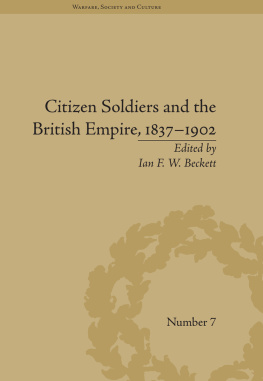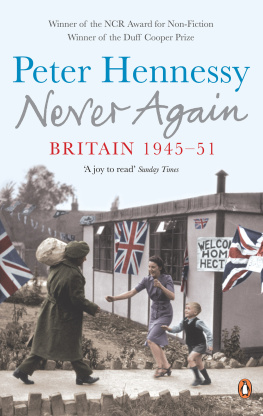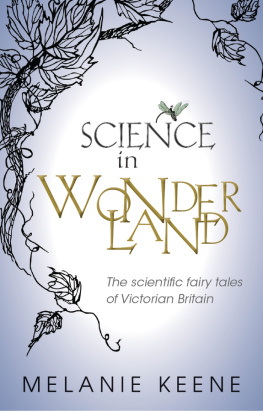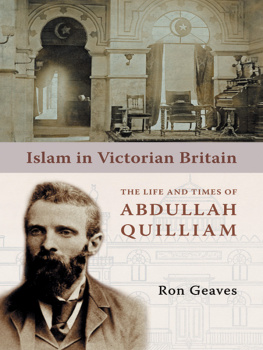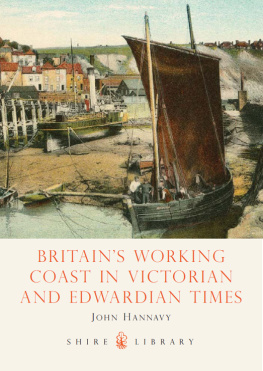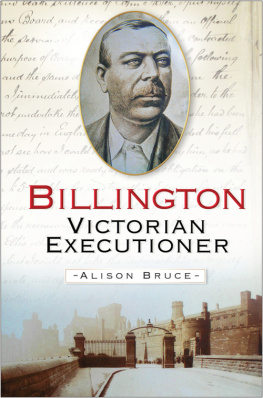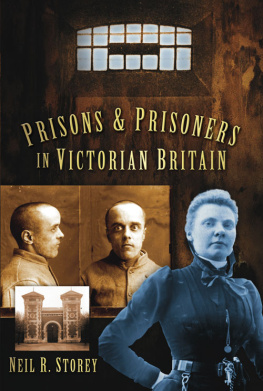First published 1966
by Methuen & Co. Ltd
11 New Fetter Lane, London EC4P 4EE
This edition published in the Taylor & Francis e-Library, 2005.
To purchase your own copy of this or any of Taylor & Francis or Routledges collection of thousands of eBooks please go to www.eBookstore.tandf.co.uk.
University Paperback reprinted five times
Reprinted 1982
Published in the USA by
Methuen & Co.
in association with Methuen, Inc.
733 Third Avenue, New York, NY 10017
1966 L.C.B.Seaman
ISBN 0-203-40644-3 Master e-book ISBN
ISBN 0-20371468-7 (Adobe eReader Format)
ISBN 0 416 69760 7 (Print Edition)
All rights reserved. No part of this book may be reprinted or reproduced or utilized in any form or by any electronic, mechanical or other means, now known or hereafter invented, including photocopying and recording, or in any information storage or retrieval system, without permission in writing from the publishers.
It is not given to human beings, happily for them, for otherwise life would be intolerable, to foresee or predict to any large extent the unfolding course of events. In one phase men seem to have been right, in another they seem to have been wrong. Then again, a few years later, when the perspective of time has lengthened, all stands in a different setting. There is a new proportion. There is another scale of values. History with its flickering lamp stumbles along the trail of the past, trying to reconstruct its scenes, to revive its echoes, and kindle with pale gleams the passion of former days.
WINSTON S.CHURCHILL
House of Commons, 12 November 1940
Introduction
The period of United Kingdom history that extends from the death of Queen Victoria to the General Election of 1951 is still too often sharply divided into five distinct parts. The years before 1914 have to be studied in books mainly devoted to the nineteenth century; the two great wars of the period tend to be considered in isolation from their origins and their aftermath, and often in isolation from the political and diplomatic changes which accompanied them; the between-war period has been the subject of many books devoted solely to it and sometimes originating from motives apologetic or denunciatory; and there is an absence of coherent studies of the years 194551, even though the many changes, domestic and international, which have since occurred have given those years a psychological remoteness out of proportion to their comparative nearness in time. On the grounds of convenience alone, it seems desirable that an attempt be made to survey the whole period in one volume.
The attempt may also be justified on grounds less utilitarian. The years from 1902 to 1914 were not merely an Edwardian and Georgian autumn, stormy or golden according to taste, significant only as denoting the passing of a long Victorian summer; in affairs foreign, imperial and domestic, they were years of seedtime rather than of harvest. It was only from 1902 onwards that the larger ambitions of Germany and Japan, which constituted the major issues in world affairs during the first half of the twentieth century, began to be clearly visible; the story of Germanys unsuccessful attempt to master Europe, and of Japans unsuccessful attempt to master the Far East are both completely contained within the period covered by this book. In like manner, fear of Russia, still a major consideration of British policy in 1902, speedily took second place thereafter to fear of Germany and (less quickly) to fear of Japan; but in 1951 it stood out once again as the major factor in world affairs. Between 1902 and 1951, the British Foreign Office had, indeed, traced a full circle from Korea back to Korea; unwillingness to be involved in a clash with Russia over that distant place troubled its thoughts about the Anglo-Japanese alliance in 1902 and about the alliance with the United States in 1951.Thus, the first half of the twentieth century provides a coherent period of study because, during it, the main flow of world history was in one sense halted, and in other senses accelerated, by the ambitions of Germany and Japan. Emergent in 1902, these ambitions could, by 1951, be regarded with some certainty as having been relegated to the past.
In 1902, the fate of Korea was remote enough to cause only mild, and purely official, concern in the United Kingdom. In 1951, it was a matter which produced dramatic and immediate effects upon the British economy, and helped to destroy the unity of one of its two major political parties. This serves as a reminder of what is perhaps the periods most important unifying factor. Even before it began, the railway and the steamship had widely disseminated those industrial techniques the pioneering of which had given the United Kingdom its spectacular but already fading monopoly of the worlds trade and oceans. Between 1902 and 1914, the development of wireless telegraphy and the discovery that the petrol engine could solve the problem of powered flight indicated that, during the first half of the twentieth century, history would at last begin truly to be world history, rather than the history of separated continents and cultures. In 1902, but not much earlier, it could be seen, if only by a few, that science and technology were about to destroy the distances which had kept the Americas and Australasia relatively isolated, Africa relatively primitive, Asia relatively decadent and Russia absolutely backward. By 1951, the process was obvious to all.
By accelerating this development, even in the process of diverting attention from it, the wars against Germany and Japan also accelerated the process by which the United Kingdom was transformed from the wealthiest, and apparently the most powerful, of the Great Powers into but one advanced State among many. Already, in the last quarter of the nineteenth century, other States, with larger populations and greater natural resources than hers, had begun to outpace her in technological progress. The two world wars stimulated industrial and technological growth all over the world; but in the United Kingdom absolute growth was accompanied, inevitably, by relative decline, notwithstanding much social advance and much successful adjustment to changing circumstance.
In 1902, Britains imperial position seemed to dominate the world; even official doubts about its impregnability derived, in part, from the fear of anti-British combinations that never materialized. But, in the four years before 1951, the British abandoned India, Burma and Ceylon, signalling the start of a wholesale European retreat from Asia. In these same years, it lost also what it had fought two twentiethcentury wars to maintain: its hold on the strategic centre of world power, the Near and Middle East. In 1951 itself, the signature of the ANZUS pact between Australia, New Zealand and the United States marked an abdication of power in Australasia also. The great world crisis over Korea in 19503 was the first for 250 years in which the United Kingdom played the part, diplomatically, militarily and economically, of a minor power. Nor, by the end of 1951, could there be much reliance on the belief that the shadow of a Common wealth of Nations was more real than the departed substance of Empire. The function of the Commonwealth idea in the 1950s was to be merely that of one uncertain hope competing with the contrary pulls towards union with Europe and special association with the United States.



